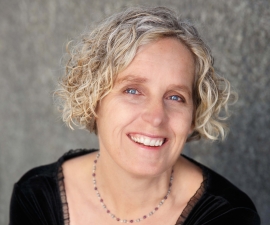

Research Bio
Mary Ann Smart is the Gladyce Arata Terrill Endowed Chair and a professor in the Department of Music. Much of her research has focused on social dimensions of opera in nineteenth-century Europe. Her first book, Mimomania: Music and Gesture in Nineteenth-Century Opera (2004), drew on textual sources (treatises on acting, staging manuals) and musical evidence to suggest close ties between musical patterns and physical gesture in repertory stretching from the first French grand operas of the 1830s to Verdi’s Aida and Wagner’s Ring. Both of these inquiries were stimulated partly by archival finds made while she was researching the sources for my critical edition of Donizetti’s last opera, Dom Sébastien, roi de Portugal (published in 2004, recorded in 2006 by Opera Rara).
Her second book, Waiting for Verdi: Opera and Political Opinion in Nineteenth-Century Italy, 1815–1848 (2018) tackled the fraught question of how opera mattered to audiences in nineteenth-century Italy, and how it made a difference to political and social realities during that period. Waiting for Verdi shows that the moral dilemmas, emotional reactions, and journalistic polemics sparked by operatic performances set new horizons for what Italians could think, feel, say, and write. Among the lessons taught by this music were that rules enforced by artistic tradition could be broken, that opera could jolt spectators into intense feeling even as it educated them, and that Italy could be in the vanguard of stylistic and technical innovation rather than clinging to the glories of centuries past. More practically, theatrical performances showed audiences that political change really was possible, making the newly engaged spectator in the opera house into an actor on the political stage.
She has also co-edited books and journal issues on gender and sexuality in opera, nineteenth-century patterns of reception of French grand opera, and (with Nicholas Mathew) on musicology’s romance with “quirk historicism.” She has published articles on the lives and public images of nineteenth-century female singers, on the ways madness is depicted in opera, and on recent and contemporary staging of canonical opera. On this, see especially “Resisting Rossini, or Marlon Brando Plays Figaro” in Opera Quarterly and the recently published article “Radical staging and the habitus of the singer,” in Borio, Giurati, Cecchi, and Lutzu, eds., Investigating Musical Performance. With David Levin (University of Chicago), she co-edit the book series Opera Lab for the University of Chicago Press.
She is currently working on two book-length projects—a theoretical study of trends in opera production since 1970 and an alternative history of French theories of voice, music, and language in the twentieth century, extending from Proust through the speech archive of Ferdinand Brunot, Michel Leiris’s flamboyantly operatic memoirs, cabaret songs based on the poetry of Raymond Queneau, and the austere audiovisual experiments of Alain Resnais.
Research Expertise and Interest
opera and politics, music and data, music and language, theater, gender, opera, performance, singers, voice, staging of opera, 19th century music, 19th century Italy
